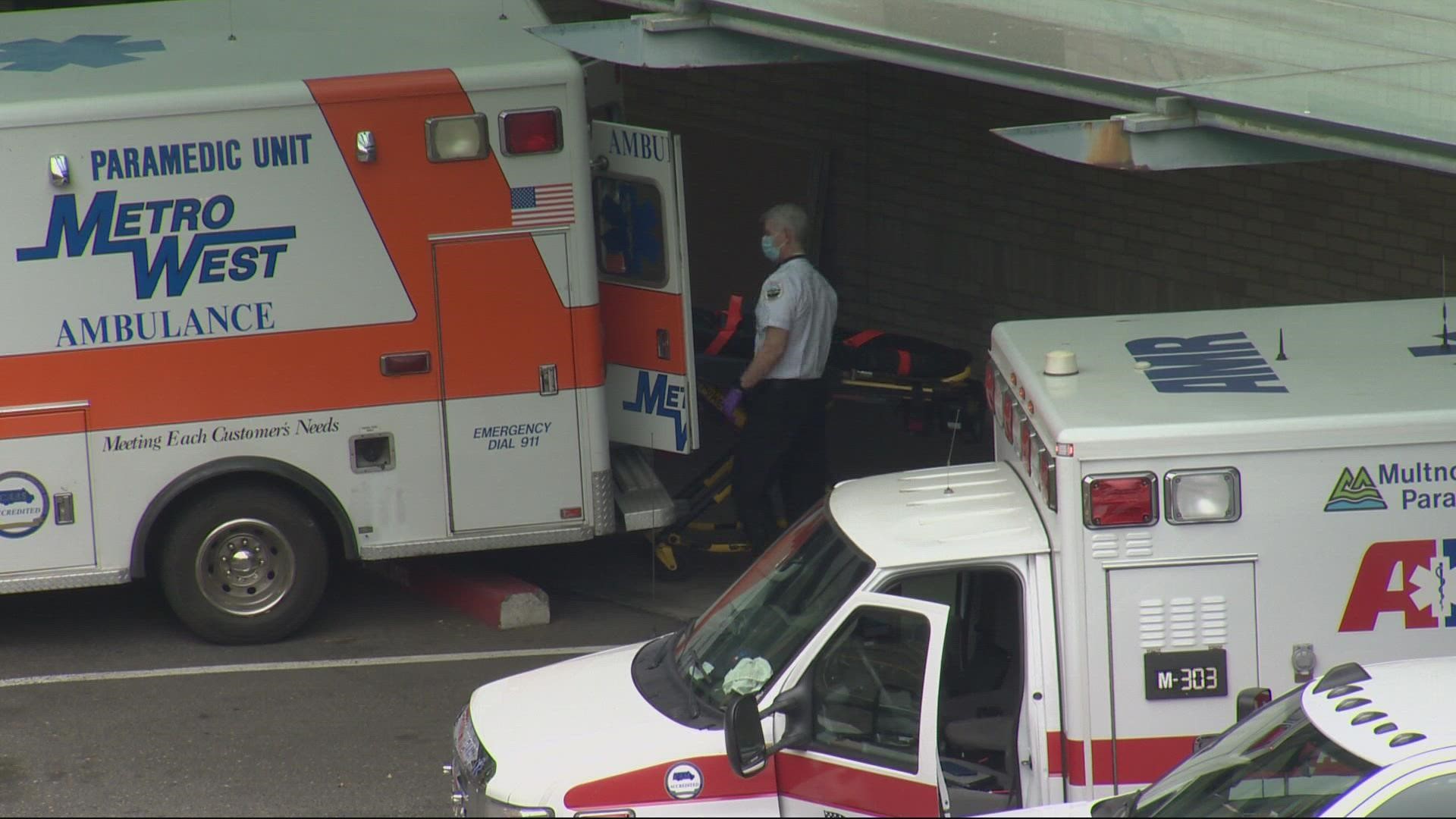PORTLAND, Oregon — With COVID cases surging in Idaho's panhandle and hospitals there exceeding capacity, the state of Idaho recently activated its crisis standards of care. That means care is not guaranteed for everyone. Instead, doctors are advised to treat patients who are most likely to survive — not necessarily those whose conditions are most critical. The goal by doing that is saving as many lives as possible while space is limited.
But in Oregon, such crisis care standards no longer exist.
“A pandemic is the time when you absolutely need crisis standards of care in place,” said Becky Hultberg, president and CEO of the Oregon Association of Hospitals and Health Systems. “So for us to not have them right now is really troubling.”
Hultberg said having a crisis standards of care document is important for healthcare workers in Oregon as well as patients. She believes everyone should understand how care will always be delivered when resources can no longer meet demand.
“We're not having to allocate a scarce resource like a ventilator at this point, but having the guidance in place gives clinicians the path forward to making these really tough decisions.”
Oregon had a crisis standards of care document with that guidance in 2018. But last year, the state said the document was discriminatory.
In December of 2020, the Oregon Health Authority (OHA) replaced the crisis care standards document with four “crisis care principles," which they developed with community input. Those principles are non-discrimination, health equity, patient-led decision making and transparent communications.
An Oregon Health Authority spokesperson told KGW that no new crisis guidelines are in development and that they expect health care providers to apply the principles. OHA also shared the following statement:
“Oregon has developed a set of crisis care principles to help guide health care providers in the event that they have to make heart-wrenching, life-and-death decisions if hospitals reach the point where they are overwhelmed with more patients than they can treat. OHA worked closely with community voices from across Oregon to ensure these difficult decisions are made in a way that is transparent, is not discriminatory and fully involves patients and families.
Hospitals can implement crisis care standards on their own — and triage decisions are just one step Oregon empowers hospitals to take to respond to a public health crisis. They can suspend elective procedures, alter staffing and take other steps that can help prevent hospitals from reaching a point where they are forced to ration care. They do not need to rely on a declaration from state health officials.
We can save lives and we can stem the crisis facing hospitals if more Oregonians get vaccinated against COVID-19 and wear masks when they're in public places. However, if any Oregon hospitals have to make these difficult decisions, state health officials will work with providers to keep the public informed. We want patients and families to be fully informed about the principles health care providers are expected to apply, the rights of patients and the avenues families can use to report their concerns to state regulators and independent advocacy organizations.”
While Hultberg agrees that the 2018 guidance needed revision, she believes the state still needs actual crisis care standards both for now and in the future. She does not believe the list of principles on its own, provides the kind of detailed information that would help clinicians during a crisis.
“These are wrenching choices to make but avoiding the conversation does not solve the problem,” said Hultberg. “We have to be prepared for our hospitals to respond if we see another surge or if we see an earthquake or some other kind of natural disaster.”

